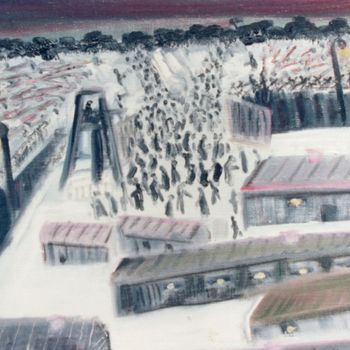Repressions and Prisons
One of the most tragic episodes in George Costakis’ life is associated with the Stalinist repressions, which reached its peak in the late 1930s. In 1937, George’s mother, his aunt and younger brother Dmitry were convicted under Article 58 of the Criminal Code (counterrevolutionary activity, presented extremely broadly - from preparing a terrorist attack to contacts with foreigners), the two women were freed after a few months.

The most terrible sentence was that of Dmitry: he was sent to the GULAG camp in Kotlas. In 1938, having received news of the extremely serious condition of his brother, George went by himself to the Arkhangelsk region, where he managed to find Dmitry and give him food and money. Later, already in exile, Costakis recalled the pictures of camp life with utter horror. George himself escaped arrest, as he retained Greek citizenship and, while working at the embassy, had diplomatic immunity. However, the fear of being under investigation accompanied him all his life: not least of all, emigration was a product of these fears - after retirement from the embassy, he was defenceless against the special services.
